Want more rage? We’ve got 11 charts that show how the superrich spoil it for the rest of us.
In the past 20 years, the US economy has grown nearly 60 percent. This huge increase in productivity is partly due to automation, the internet, and other improvements in efficiency. But it’s also the result of Americans working harder—often without a big boost to their bottom lines. Oh, and meanwhile, corporate profits are up 20 percent. (Also read our essay on the great speedup and harrowing first-person tales of overwork.)
You have nothing to lose but your gains
Productivity has surged, but income and wages have stagnated for most Americans. If the median household income had kept pace with the economy since 1970, it would now be nearly $92,000, not $50,000.
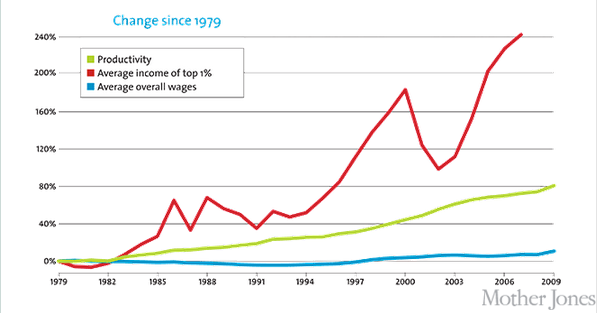
Growth is back…
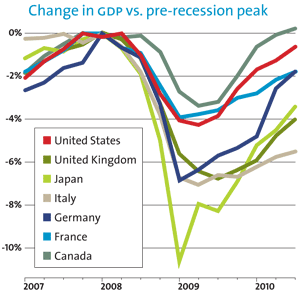
…But jobs aren’t
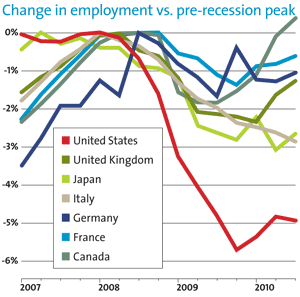
Sorry, not hiring
The sectors that have contributed the most to the country’s overall economic growth have lagged when it comes to creating jobs.
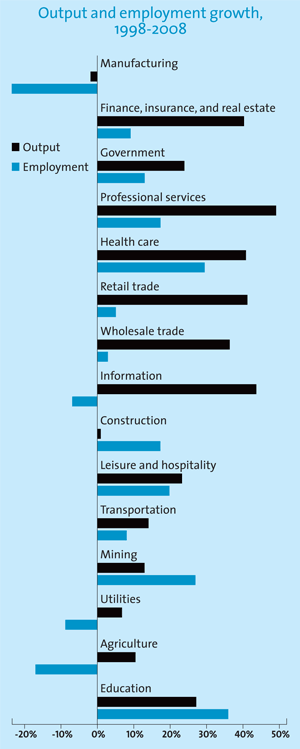
The wage freeze
Increase in real value of the minimum wage since 1990: 21%
Increase in cost of living since 1990: 67%
One year’s earnings at the minimum wage: $15,080
Income required for a single worker to have real economic security: $30,000
Working 9 to 7
For Americans as a whole, the length of a typical workweek hasn’t changed much in years. But for many middle-class workers, job obligations are creeping into free time and family time. For low-income workers, hours have declined due to a shrinking job market, causing underemployment.
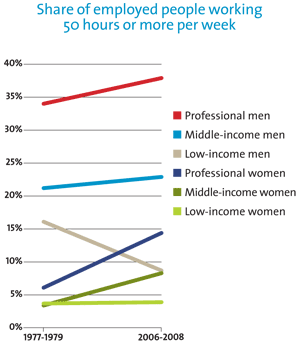
Labor pains
Median yearly earnings of:
Union workers: $47,684
Non-union workers: $37,284
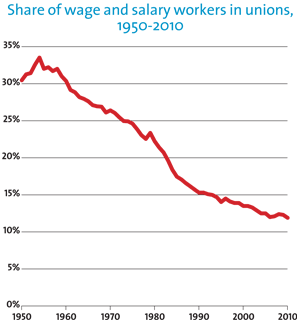
Dude, Where’s My Job?
More and more, US multinationals are laying off workers at home and hiring overseas.
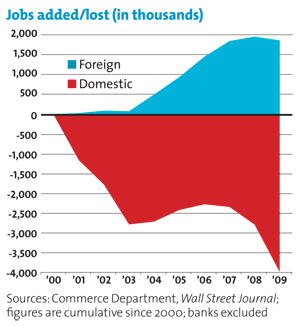
Proud to be an American
The US is part of a very small club of nations that don’t require…
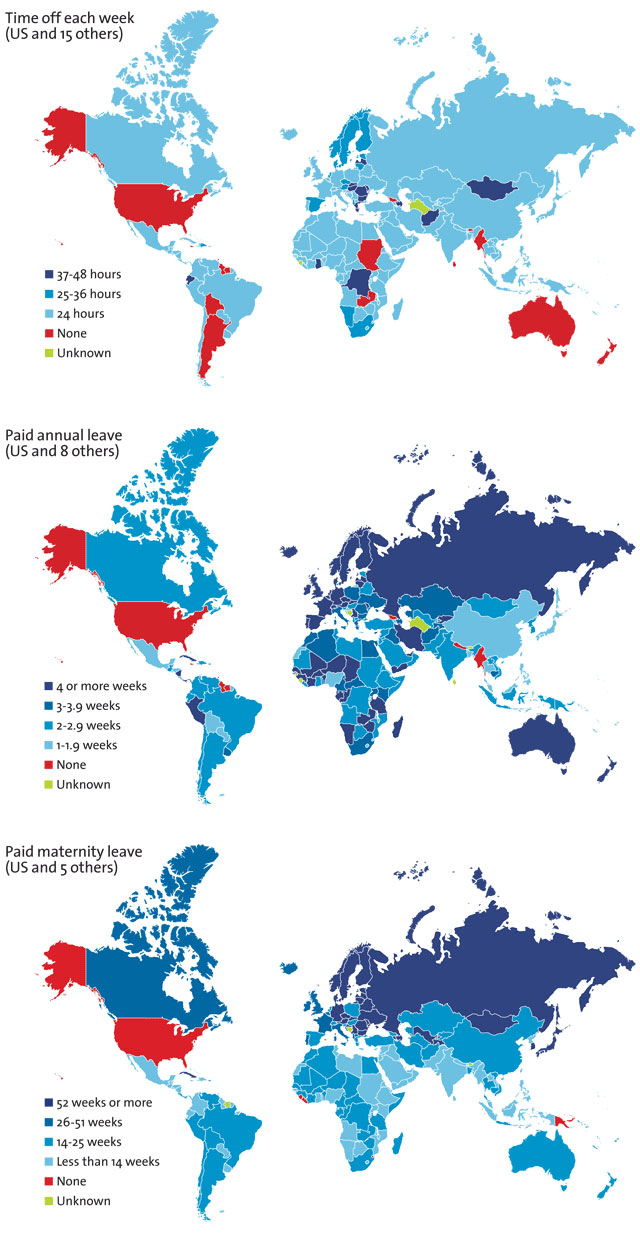
Digital overtime
A survey of employed email users finds:
22% are expected to respond to work email when they’re not at work.
50% check work email on the weekends.
46% check work email on sick days.
34% check work email while on vacation.
The second shift
Working moms pick up more child care and household duties than working dads—about 80 minutes more every day. Meanwhile, dads enjoy nearly 50 more minutes of watching TV and other leisure activities on a daily basis.
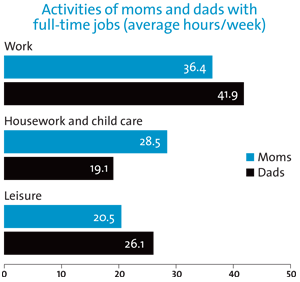
Chore wars
Thanks, guys—you’re pitching in more than twice as much as you did in the ’70s. But women still get stuck with the majority of work around the house.
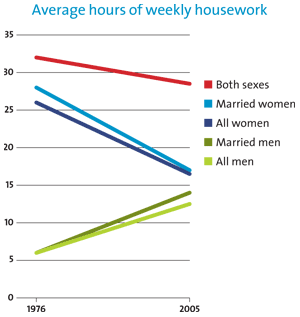
Sources
Productivity/income: Bureau of Labor Statistics, Congressional Budget Office (PDF), Economic Policy Institute, Census Bureau (Excel)
GDP/jobs: Organisation for Economic Co-operation and Development; Stephen Gordon, Université Laval
Sector growth: Bureau of Labor Statistics
Minimum Wage: Bureau of Labor Statistics, Economic Policy Institute, Wider Opportunities for Women (PDF)
50 hours: Center for American Progress (PDF)
Unions: Bureau of Labor Statistics, Economic Policy Institute
Benefits maps: McGill Institute for Health and Social Policy
Email: Pew Internet & American Life Project (PDF)
Second shift: Bureau of Labor Statistics (PDF)
Housework: Michigan Institute for Social Research
Also read: First-person stories from the front lines of overworked America and The Speedup: Corporate profits are booming. So why are you being worked to the bone?
More Mother Jones charty goodness: It’s the inequality, stupid; Only little people pay taxes; How the rich get richer; how the poor get poorer; who owns Congress?
















